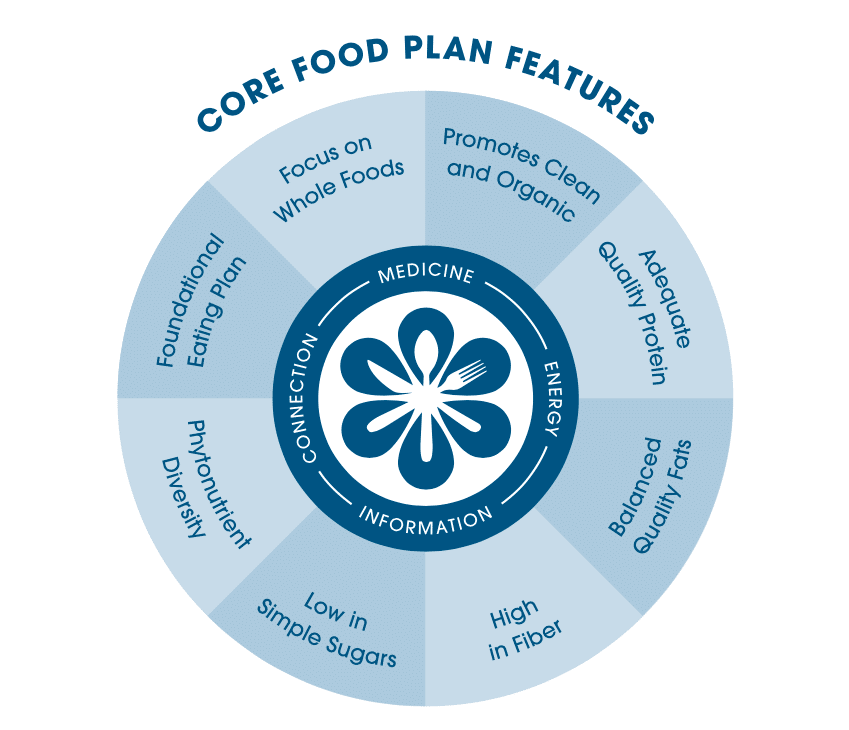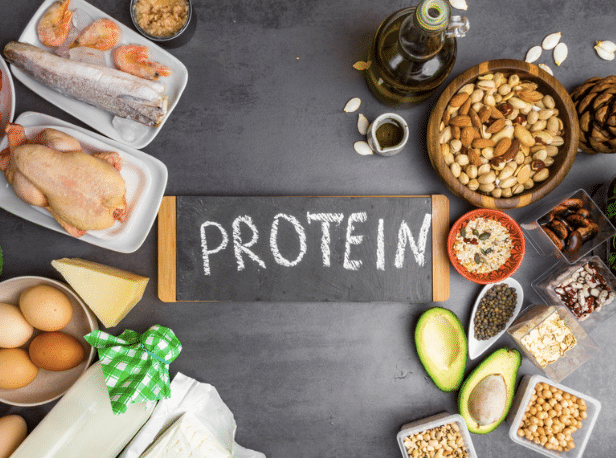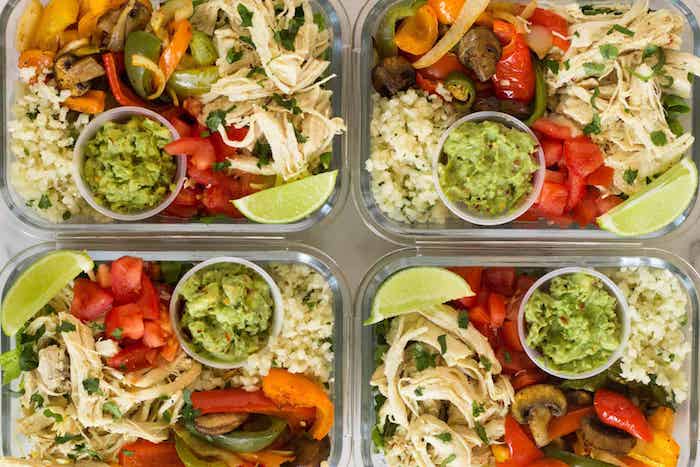There are a lot of good reasons to start preparing meals, or portions of a meal, ahead of time. But some of the biggest reasons are that it saves sanity, time, money, and helps you eat healthier.
Meal prep should make feeding yourself and your family easier. It gives you a head start on the week and helps you feel more in control of what you’re eating and how you spend your time.
However, it isn’t a one-size-fits-all process that looks the same every week, for every household and person.
It also does not necessarily mean prepping, cooking, and portioning every single meal for the week ahead.
Unless, of course, that’s what you want it to be. What works for one person might not work for another, and that’s okay. Meal prepping might not look the same from week to week, as schedules or needs can shift or change. We’ve put together this healthy meal prep guide to help you figure out the meal prep strategy that works best for your life.

The Core Food Plan (CFP) is a first step towards healthier eating and is designed to encourage eating in a way that will nourish and energize the body. It is based on current research on what and how people should eat in order to live long, healthy lives. It takes elements from the Mediterranean diet and the hunter-gatherer approach (sometimes referred to as the “Paleo” diet), and encourages eating low-glycemic carbohydrates. This food plan can be easily changed to suit personal preferences and health needs. It is available with vegetarian and vegan modifications, and can accommodate foods from virtually any culture. The CFP uses the basic principles of “food as medicine” to support an individual’s health goals and improve his or her relationship with food.
Before you start…
The point of meal prep is to make mealtimes easier.
So what do you need to feel more in control, healthy and free?
Think about your struggles. Do you need healthier breakfasts? Focus on prepping make-ahead eggs or oats for breakfast. Do you want to quit spending all your money on lunch? Maybe lunch is the first thing to try meal prepping. Or maybe getting dinner on the table in 20 minutes after work always leads you to grab the takeout menu – time to tackle that challenge.
Start small
When prepping for the week, aim to create enough dinners for 2-3 days of the week.
Food storage and reheating
- If you are preparing several hot meals, you should allow the meals to cool down (nearly to room temperature) and then store them in the refrigerator or freezer within 1-2 hours of preparing.
- Glass containers are great to have in the fridge because you can see the contents, and they generally can be used in most microwaves. If you use a plastic container, make sure it is BPA free.
- Wondering is you can freeze your meal prep? The answer is yes! But if you’re going to freeze your meals, make sure the containers are airtight! If not, the food may be susceptible to freezer burn and taste like ice by the time you reheat and eat the meal.
- When defrosting your meals, always defrost in the fridge the night before you are going it eat the meal. It takes longer but has less risk associated with it. Be careful if you’re planning on using the microwave to defrost your meals. The microwave will often heat food quickly, and if there were any bacteria on/in the food, it can start to multiply and spread. Additionally, some parts of the meal will be frozen while others remain warm hot, so part of your meal can get overcooked.
How to meal prep
- Take a look in your pantry – what do you have that you want to use?
- Look up favorite recipes – pick ones that look easy and reliable.
- Plan your menu. You can plan for the week or for the month.
- Make a grocery list – All foods have different nutritional components, and your list should vary so your body doesn’t get too used to one way of eating.
- After shopping, sort food on counters into make now, make later.
- Wash and prep fruit and vegetables – Cut them up, store in containers or baggies in the fridge.
- Cook your meats and divide them into containers.
- Cook your grains and store them in containers.
Remember that you don’t have to spend hours in the kitchen for meal prep to happen. Focus on one thing at a time, and nail it before overwhelming yourself with everything all at once. The benefits of meal prep are so worth the effort. You will save yourself time and money. You will feel less stressed. You will eat healthier.
Our Latest Blogs
-

Would You Be a Good Health Coach?
Read Full Article: Would You Be a Good Health Coach? -

Food Sensitivity Testing 101: Supporting Clients with Inflammation and Gut Issues
Read Full Article: Food Sensitivity Testing 101: Supporting Clients with Inflammation and Gut Issues -

Protein 101: The Health Coach’s Guide
Read Full Article: Protein 101: The Health Coach’s Guide

